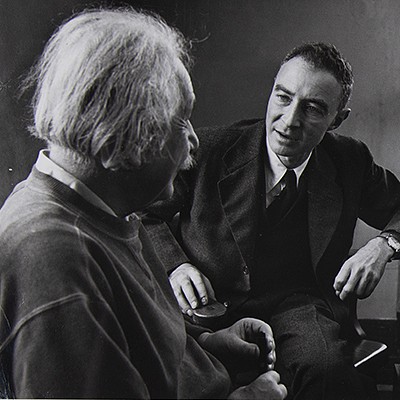Joseph Brant Autograph Letter Signed on Treaty of Stanwix and Native Americans Held Hostage
Two ways to bid:
- Leave a max absentee bid and the platform will bid on your behalf up to your maximum bid during the live auction.
- Bid live during the auction and your bids will be submitted real-time to the auctioneer.
Bid Increments
| Price | Bid Increment |
|---|---|
| $0 | $5 |
| $50 | $10 |
| $200 | $25 |
| $500 | $50 |
About Auction
Dec 6, 2023
Boasting 500+ rare and remarkable lots, RR Auction's December Fine Autographs and Artifacts sale features special sections dedicated to World War II and Science & Technology. RR Auction support@rrauction.com
- Lot Description
ALS signed “Jos. Brant,” three pages on two adjoining sheets, 7.25 x 9.25, January 13, 1785. Handwritten letter to Matthew Visscher, written from Cataraqui, Ontario. In part: "I hope this letter will find you in good state of health and hope you will be able to answer me this, without any delay & be agreeable your promise to me...I have nothing any Particular to inform you concerning the Publick affairs because I live alone here I been away from the five nations very near three months...I was as far as Quebec my way to England but hearing there that Capt. Aaron Hill a Mohock chief was detained & kept as a hostage by the commissioners of Congress, which alarmed me, made me turn back from there to this place & shall winter myself here. I have wrote letters to His Excellency Governor Clinton & to my friend Major Peter Schuyler the time I left at Niagara, I had no answer, neither of them since, so in short I am at present in the dark to many points of business. Even I had no true account the manner Capt. Hill is kept—& where he is I don't know. The conclusion of that council at Fort Stanwix by the commissioners I have had no account at all, therefore I hope you will please to explain me some of the heads of that council...I intend to be at Montreal the 10th of February I think it would not be of miss if one of you should be there the same time to talk over of those agreements made at our meeting at Fort Stanwix if it should be so I think it would be for the interest of both parties...I wish Major Peter Schuyler should be the person that would meet me at Montreal." In fine condition, with a few short edge splits.
Intended to serve as a peace treaty between the Americans and the Iroquois, the Treaty of Fort Stanwix was finalized on October 22, 1784. Joseph Brant led talks at the start of the conference, but had to leave early for a trip to England. Negotiations continued under Cornplanter and Captain Aaron Hill, who were given harsh terms by American commissioners Oliver Wolcott, Richard Butler, and Arthur Lee. As part of the treaty, six of the Iroquois delegates—including Hill—were taken hostage, to be held until 'the prisoners, white and black, which were taken by the said Senecas, Mohawks, Onondagas and Cayugas, or by any of them, in the late war, from among the people of the United States, shall be delivered up.' The treaty also called for vast land holdings to be ceded to the United States. Brant was justifiably upset with this outcome, and, having heard no word of Captain Aaron Hill's disposition many weeks later, sought news of his well-being. Ultimately, the Iroquois leaders claimed that they had been forced to sign the treaty, and the Six Nations council at Buffalo Creek refused to ratify the treaty, denying that their delegates had the power to give away such large tracts of land.
Accompanied by the July 1873 issue of The American Historical Record, in which the text of this letter was first published. It is thus appraised by the author: 'This letter, brief and clumsily phrased as it is, reveals the secret of Brant's greatness,—his enterprising and dauntless spirit, his calm self-reliance and steadiness of purpose, his anxiety to thoroughly interpret and fathom every event and measure affecting his people, or the honor of the flag that sheltered them, and that rare fidelity which led him to abandon a voyage to Europe when on a point of embarcation, and after a journey weary and formidable in those days, and all because an obscure chief was detained as a hostage for causes or upon a pretext with which Brant had not been made acquainted.' A fantastic letter by one of the preeminent Native Americans of the 18th century. - Shipping Info
-
Bidder is liable for shipping and handling and providing accurate information as to shipping or delivery locations and arranging for such. RR Auction is unable to combine purchases from other auctions or affiliates into one package for shipping purposes. Lots won will be shipped in a commercially reasonable time after payment in good funds for the merchandise and the shipping fees are received or credit extended, except when third-party shipment occurs. Bidder agrees that service and handling charges related to shipping items which are not pre-paid may be charged to a credit card on file with RR Auction. Successful international Bidders shall provide written shipping instructions, including specified Customs declarations, to RR Auction for any lots to be delivered outside of the United States. NOTE: Declaration value shall be the item’(s) hammer price and RR Auction shall use the correct harmonized code for the lot. Domestic Bidders on lots designated for third-party shipment must designate the common carrier, accept risk of loss, and prepay shipping costs.
-
- Buyer's Premium



 EUR
EUR CAD
CAD AUD
AUD GBP
GBP MXN
MXN HKD
HKD CNY
CNY MYR
MYR SEK
SEK SGD
SGD CHF
CHF THB
THB












